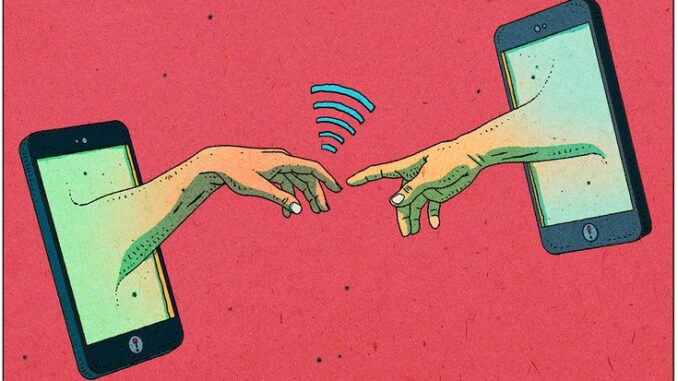
In what some are calling an intimacy drought, the digital age has brought on a new generation of relationship pitfalls. Social media-related transgressions are becoming increasingly common among couples, making it harder than ever to maintain a healthy relationship. Slang has even evolved to describe these “phone-pas,” with terms like phubbing, micro-cheating, and phone-checking on the rise.
The recent surge in this phone-related vocabulary is backed by research. According to statistics from the Pew Research Center, social media is negatively affecting relationships. The study, which surveyed 4,860 U.S. adults, explored common issues affecting couples, including quality time, jealousy, and privacy. As social media is here to stay, it is important to understand how phone use compromises relationships and mental health.
Phubbing: Cheating your partner out of quality time in favour of your phone
The Pew study found that 40% of coupled Americans are bothered by the amount of time their partner spends on their phone. This issue is especially prevalent among couples under the age of 50, likely due to the popularity of social media within this demographic.
This trend can be detrimental for couples trying to maintain healthy relationships, as a lack of quality time leads to disconnection and feelings of undesirability. Moreover, 51% of participants reported communicating with distracted partners due to phubbing. Poor communication, exacerbated by social media use, is another relationship killer.
Micro-Cheating: Subtle acts of infidelity through social media interactions
Approximately a quarter of adults surveyed stated that their partner's social media interactions had caused jealousy within the relationship. This issue disproportionately affects younger couples, with over one-third of individuals aged 18 to 29 reporting feelings of jealousy over social media interactions.
This theme of jealousy extends to continued communication with individuals from the past. Alarmingly, 70% of young participants admitted to using social media to monitor an ex.
Since jealousy is associated with poor mental health, it often reflects low relationship satisfaction. If unaddressed, jealousy can undermine the foundation of a healthy partnership.
Phone-Checking: Monitoring a partner’s phone use, with or without their knowledge
More than one-third of participants confessed to checking their partner’s phone without their knowledge. Despite this, the majority of respondents stated that this behaviour is rarely, if ever, acceptable. This raises the question: how can trust be built without breaching privacy?
As the line between privacy and loyalty becomes increasingly blurred, many couples are creating their own boundaries. For some, sharing passwords has become a norm in modern relationships. The study found that nearly 75% of couples share their phone password with their significant other, while approximately 45% share social media passwords.
However, monitoring a partner’s social media interactions often has negative effects, reducing trust and increasing anxiety within relationships.
The Solution
Alternative studies suggest that forgoing social media altogether could be the answer. Interestingly, couples who post about each other less on social media report greater relationship satisfaction overall.


Be the first to comment